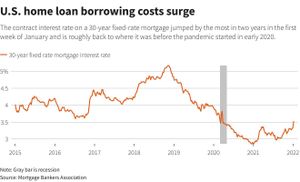U.S. President Donald Trump announced significant tariffs on imports from Canada, Mexico, and China, raising the stakes in the already tense trade relationships with these nations. On January 31, 2025, Trump signed three executive orders imposing 25% tariffs on most goods from Canada and Mexico, alongside a 10% tariff on Chinese imports. This move aims to address what Trump describes as national emergencies concerning illegal immigration and drug trafficking, particularly the crisis of fentanyl devastating American communities.
According to Trump, "We are suffering because of millions of criminals arriving in our country—criminals, convicts, people from all over the world. They’re coming in through Mexico and even through Canada," during his announcement reported by The Washington Post. The tariffs represent his administration's aggressive strategy to encourage domestic production and reduce reliance on imports, claiming it will protect American jobs and businesses.
Previously, many imports from Canada and Mexico were exempt from tariffs under trade agreements negotiated during Trump's first term. The newly imposed tariffs will significantly increase costs for U.S. companies, particularly affecting their supply chains. Economists have expressed skepticism, noting past tariff measures did little to bolster job growth and could lead to adverse economic consequences.
On February 1, 2025, Canadian Prime Minister Justin Trudeau responded firmly, condemning Trump's tariffs as harmful not only to Canada but also to American consumers. Trudeau stated, "This is a choice... it will harm Canadians, but beyond... real consequences for you, the American people," during a press conference reported by the BBC. He announced retaliatory 25% tariffs on $155 billion worth of U.S. goods, targeting popular items such as beer, wine, fruits, and clothing.
Mexico, under President Claudia Sheinbaum, also vowed to implement countermeasures against U.S. tariffs. She fiercely rejected Trump's allegations linking her government to drug cartels, asserting, "If such alliance exists anywhere, it is with U.S. arms manufacturers," as stated on social media. She also criticized the U.S. for its failure to address its domestic drug crisis, calling for dialogue rather than punitive tariffs.
China's response was similarly swift. The Chinese Ministry of Commerce expressed strong dissatisfaction and announced plans to challenge the tariffs at the World Trade Organization (WTO), stating, "China is strongly dissatisfied and firmly opposes this." The vice-premier previously sought a "win-win" solution to trade tensions but warned of immediate countermeasures to safeguard its economic interests.
Experts anticipate widespread economic repercussions from the tariffs. With Canada, Mexico, and China accounting for over 40% of U.S. imports, the effects on consumer prices could be significant. Concerns circulate particularly around the automotive industry, as disruptions may lead to higher vehicle prices, with some reports estimating increases of $3,000 per car. Retail and agriculture sectors have also voiced their apprehension, warning consumers could feel the pinch at grocery stores and gas pumps soon enough.
Trudeau has emphasized the need for Canadians to support one another during the impending economic fallout, urging consumers to shift their buying habits away from U.S. products. He noted, "We don’t want to be here, we didn’t ask for this," indicating the challenges the tariffs could pose to both economies.
With both Canada and Mexico preparing retaliatory tariffs, this situation could escalate quickly, potentially leading to what some analysts predict could become a full-blown trade war. Trump has indicated he is open to increasing duties if necessary, which could complicate matters even more.
Ashley Davis, a Republican lobbyist, noted the potential for Trump to leverage these tariffs to extract concessions from Canada and Mexico, aligning with key issues voters rallied behind during recent elections. The upcoming weeks will be pivotal as all eyes turn to the North American trade relations, balancing on a delicate line of negotiation and conflict.
Overall, the tariffs are not just economic measures; they embody the complex interplay of politics, diplomacy, and commerce amid rising tensions between the United States and its neighbors. The industries and consumers poised to bear the brunt of these tariffs hope for swift dialogue and resolution to restore stability and confidence.



